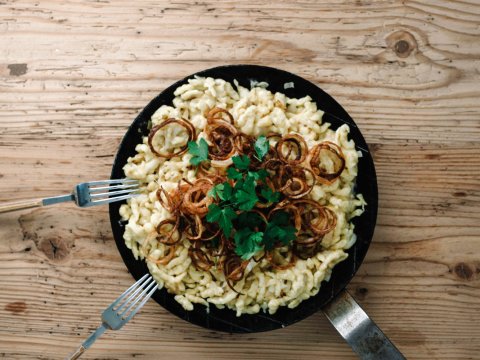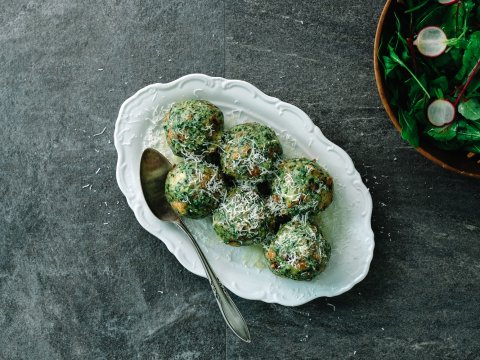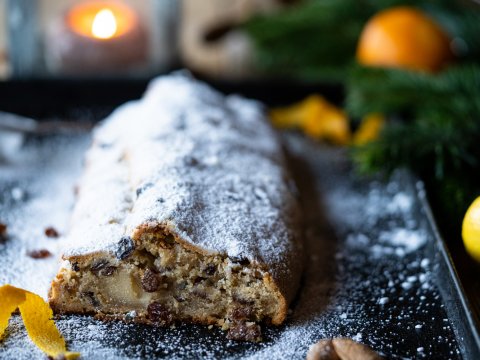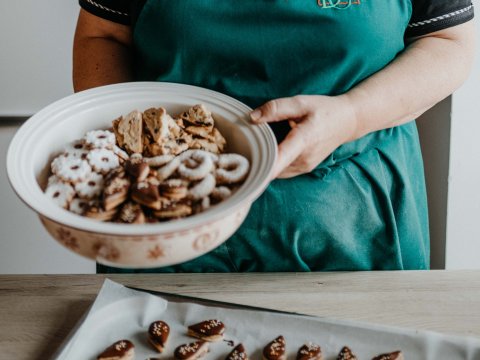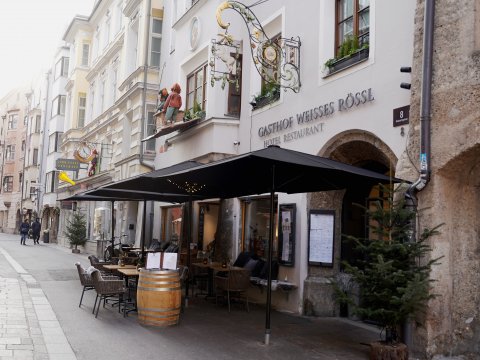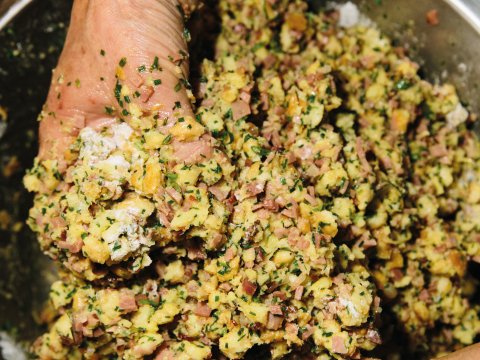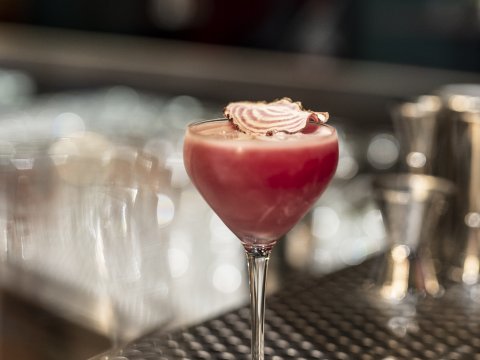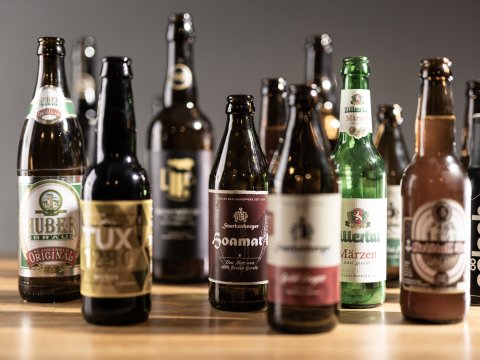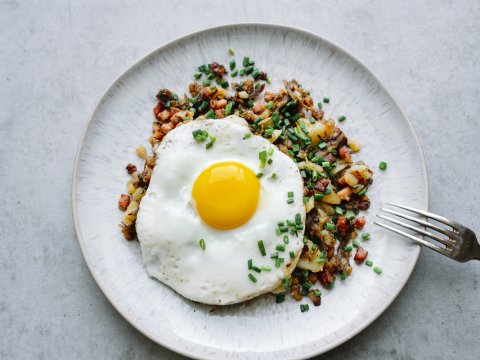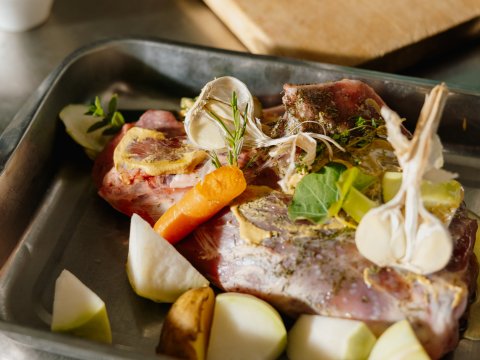Why are we even doing this?
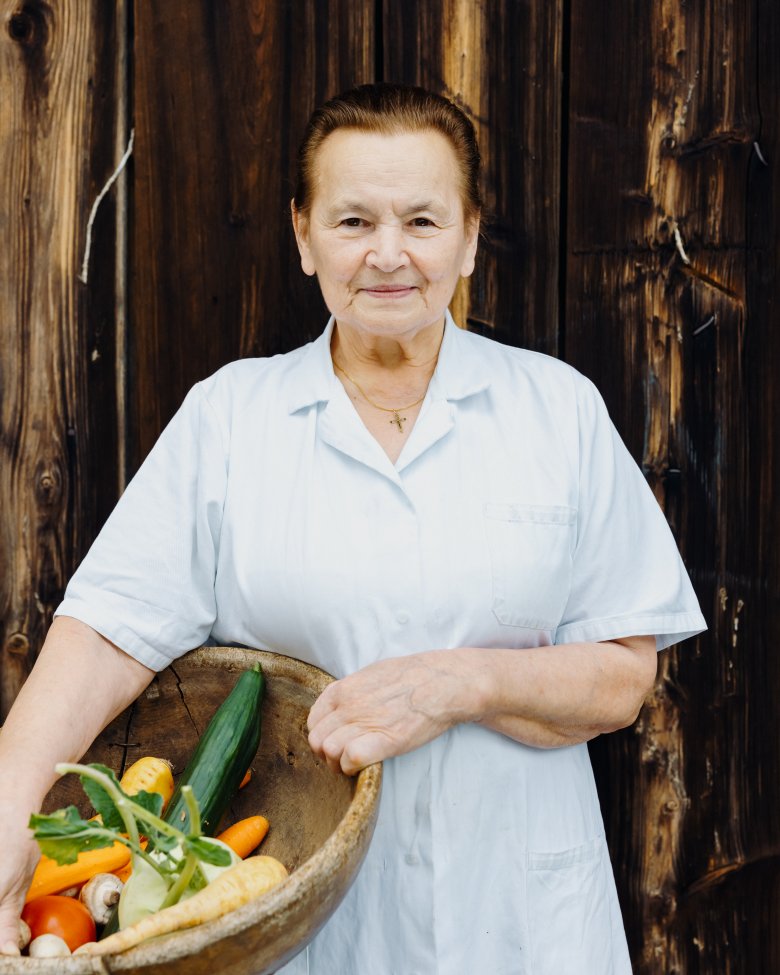
As a girl, Monika Hirschhuber (80) dreamt of becoming a midwife. In the end she trained as a chef – a job she loves until this day.
Her mother gave birth to twelve children at home, of which Moni was the fourth. She decided against her dream job, training to be a midwife, and instead stayed at home to help her parents. After all, there was more than enough work to go around. She brought up her siblings while her parents ran one of the first cafés in Weerberg – a busy job that left them with little time for their children.
"At that time, tourism was a way out of farming and thus a way out of poverty," Moni explains. Just a few decades ago, Tirol was still a land of farmers. The only way to manage the huge amount work was by having many children. In establishing the family café in Weerberg, Moni's father looked to secure the future of his 12 children as tourism began to take off in the region. The building was eventually converted into flats, which were then sold. Moni herself married a handsome farmer from Weer. Opposite her husband's farm she saw that there was an inn up for sale. In 1968 Moni followed in the footsteps of her parents and the couple purchased the inn in question: the Gasthof Steixner.
Since then she can be found hard at work in the kitchen every day cooking all manner of dishes, many of them local not only to Tirol but to this part of Tirol. One example is cow bone marrow, placed in a pot of cold water and boiled overnight. The secret ingredient? Time. At the height of the Covid-19 pandemic the family cooked over 100 takeaway lunches for the people in the village and the surrounding area. Beef soup was one of the favourites, served in pickling jars.
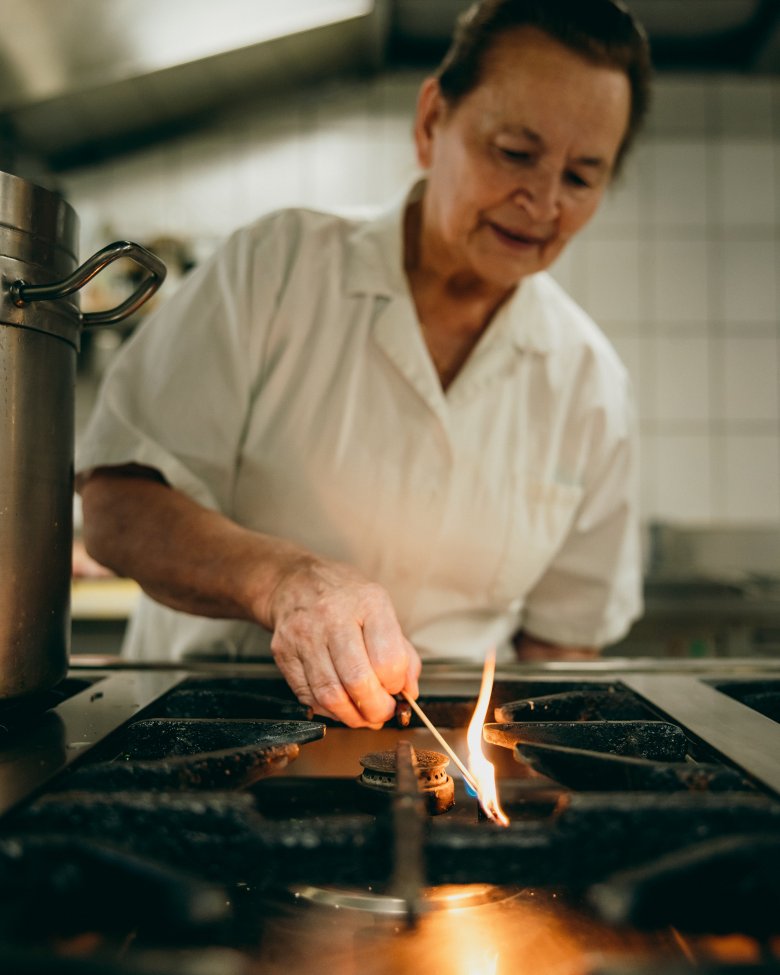
Even in the early years of the Gasthof Steixner, Monika and her husband adopted 'sustainable' practices before the concept really existed. Much of their meat was sourced from the local butcher. Pork came from family-owned pigs slaughtered behind the building and processed in the kitchen. The classic local dish of oven-baked liver also dates from this time. It is a speciality of Moni's, but one that rarely makes it onto the menu these days. The reason? Offal. A traditional wedding dish, it consists of pig lung, liver and heart, all mashed up together and wrapped in the pig's stomach lining. "We all have one," Monika explains. "It holds our intestines together. If it breaks then we have a hernia."
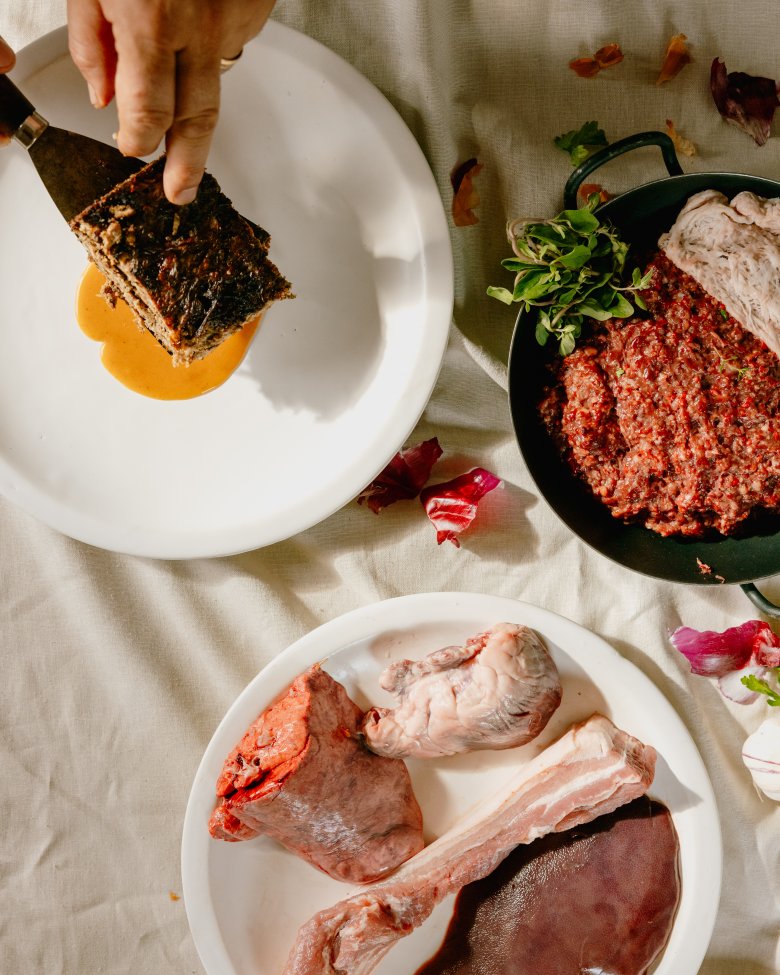
The 1980s saw a boom in ski tourism. With this came plenty of work and income, but also new challenges measurable in the sheer number of new guests alone. "I remember one winter when we had a tour guide staying with us all season. There was a different themed party each night: carnival, mountain festival, etc. He always found some reason or other to celebrate," Moni recalls. Over the decades the Gasthof Steixner has welcomed many nationalities – Germans, Australians, Brits – as well as plenty of locals, for example groups from regional trade unions and groups of disabled people all keen to experience the beauty of winter in the mountains.
Moni and her family worked non-stop. "Only inner satisfaction gives you strength," says Moni with a soft smile and a sure look. But where does this inner satisfaction come from? Here at Gasthof Steixner, perhaps it comes from the purpose she finds in her work. It is very important to the family that the guesthouse should be a place accessible to everyone. They cook for workers, for people who can't or don't want to cook, for the village and for tourists. It doesn't matter. Every guest is first and foremost a human. This friendly, uncomplicated approach is one of the reasons why people have been coming back here for generations."Now it is the children of our first guests who are already coming back – with their own children!"
"We take an interest in the lives of the people we welcome here – and they take an interest in us. If they have children or lose family members, we hear about it. There is a real connection." Eva, Moni's daughter and the woman now in charge of running the Gasthof Steixner, sends and receives cards and flowers throughout the year to regular guests, and once a season they see each other. Eva represents the next generation. "I was born into this. We worked here on weekends and holidays even as children and it still makes me very happy today. We have 80-90% regular guests. That means they are not really guests but more friends."
Monika's son, Christian, is head chef in the kitchen and strives to make people happy by offering traditional, afforable and, of course, delicious food. A fancy menu or endless growth of the business are of no interest to him. When I ask him how he would describe the taste of Tirol he replies with a smile: "Smoke, bacon and, of course, the famous Graukäse cheese."
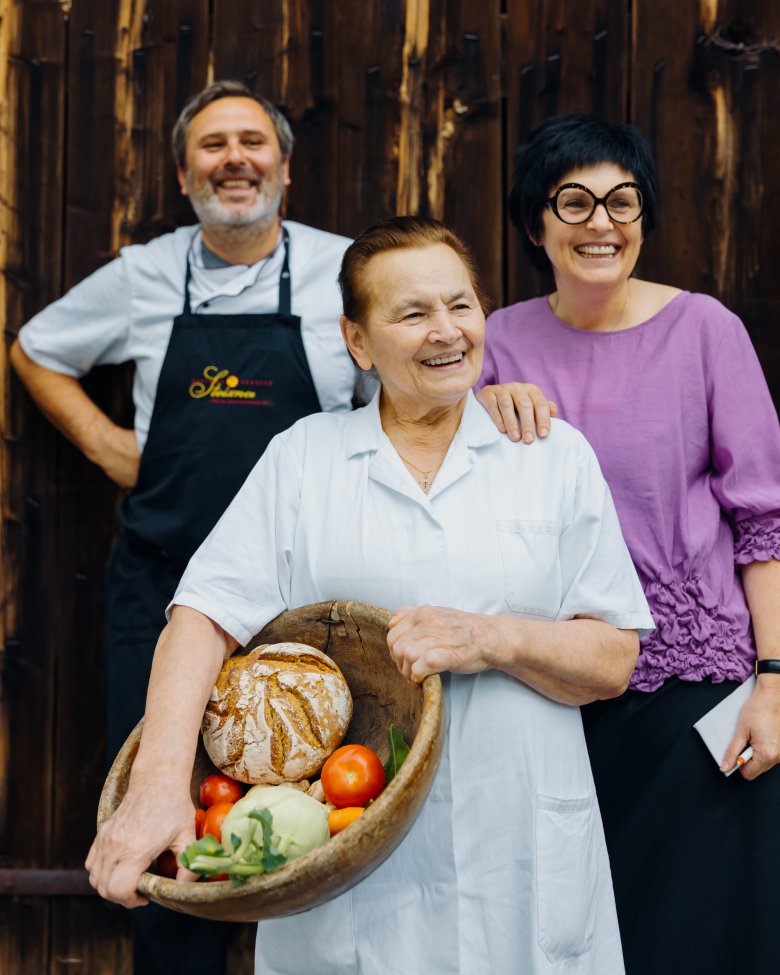
Even today the Gasthof Steixner dominates family life. Eva and Christian have huge respect for what their parents achieved in their time at the helm. Moni sums it up well when she says: "Running a guesthouse is hard work, but it's also bloody great fun."

Anna's design agency Molle&Korn creates the highlight campaigns for Tirol. During her time working on these projects she has experienced her fair share of adventures, eaten more than a few dumplings and met plenty of Tiroleans who have inspired her. One of her big dreams, again inspired by a local, is to climb the migthy Großvenediger mountain in East Tirol.









